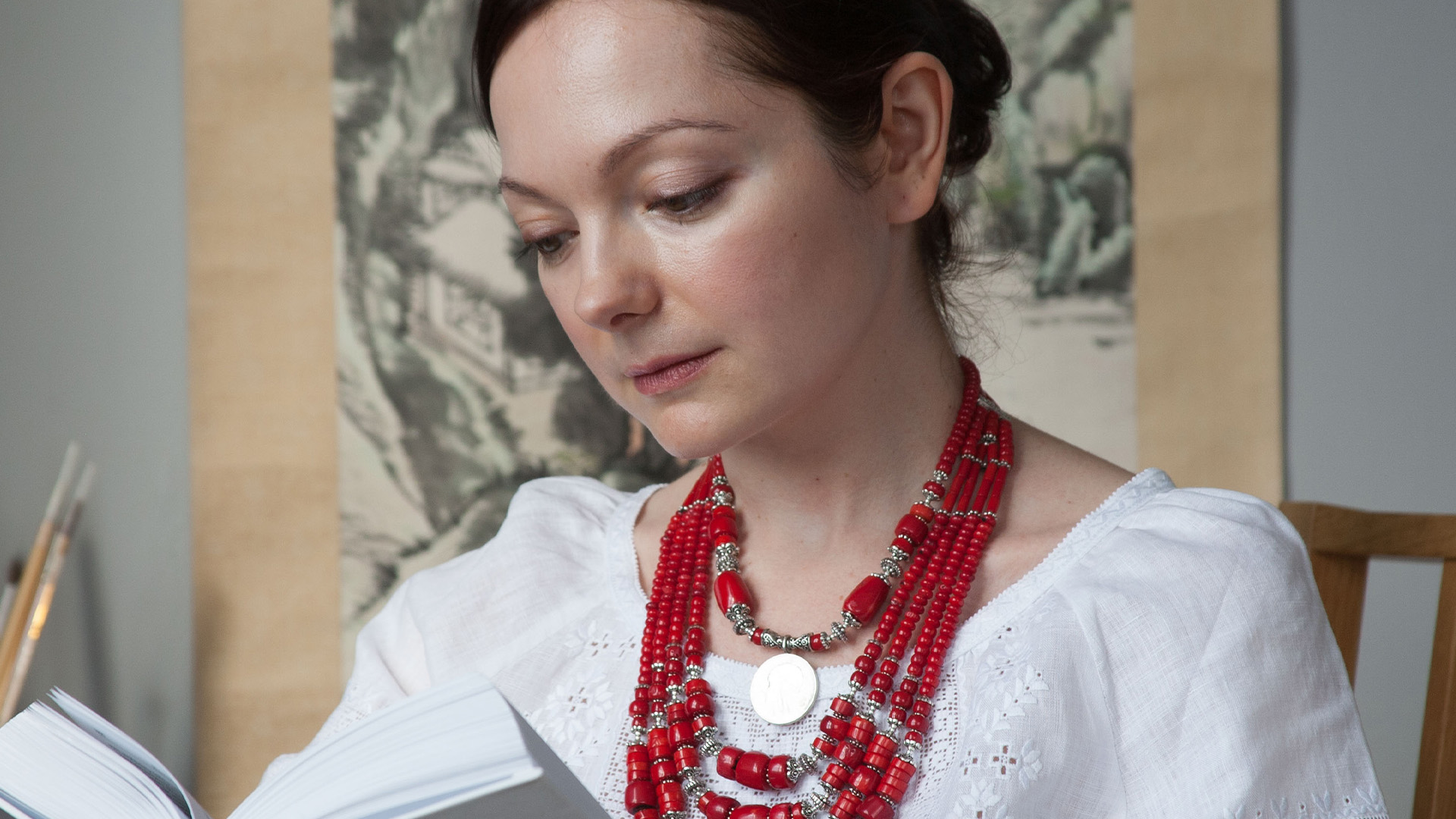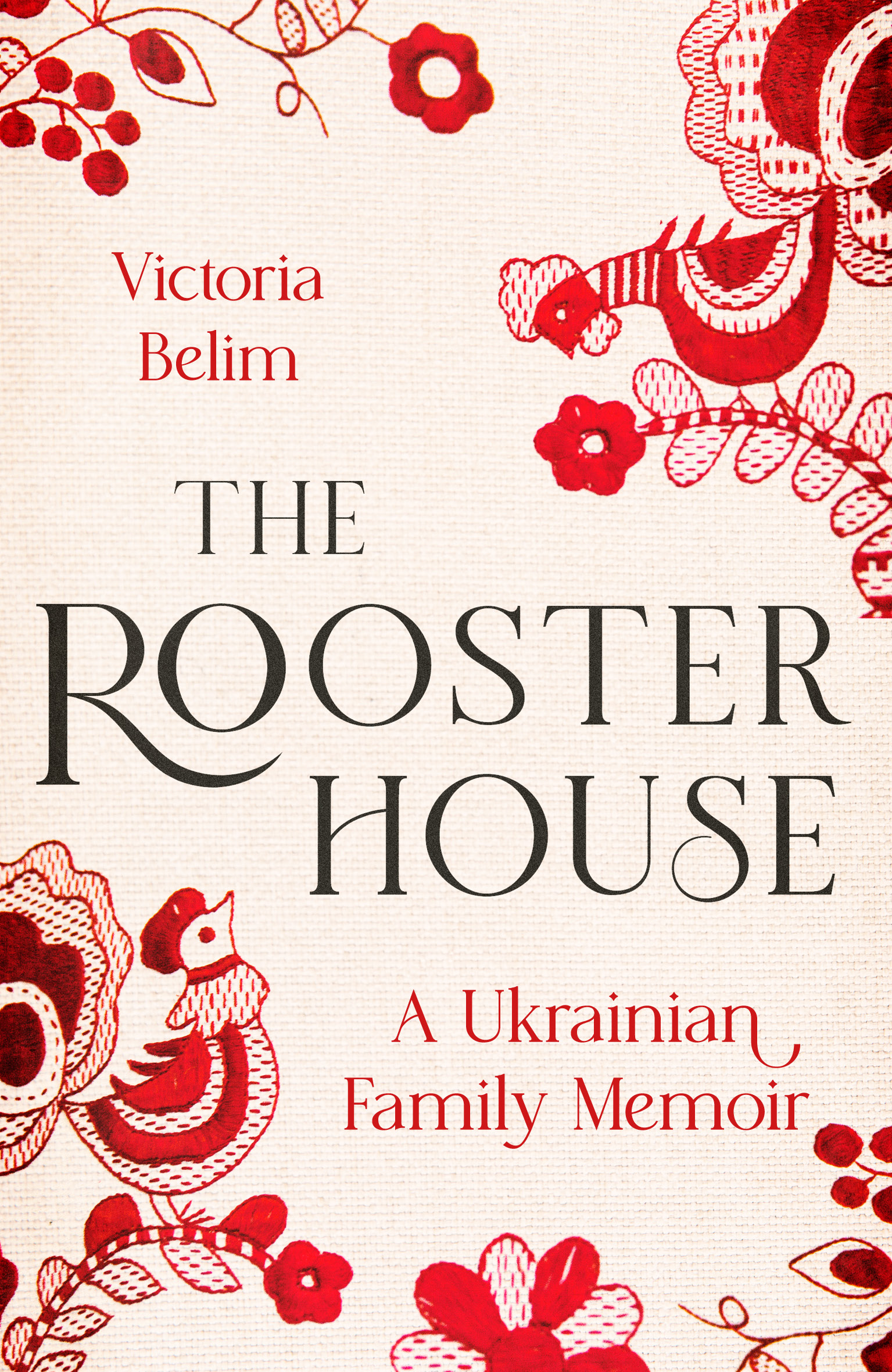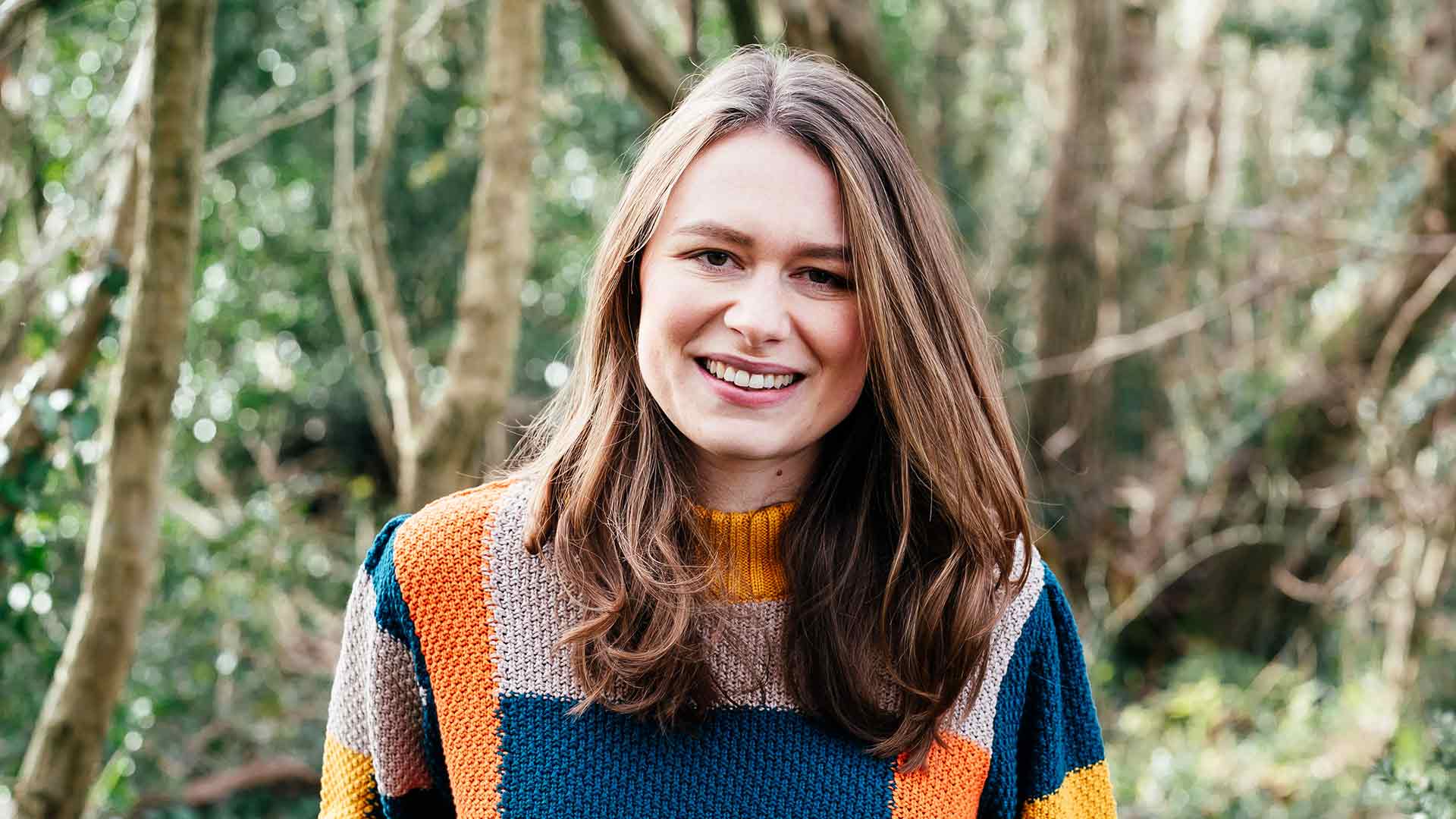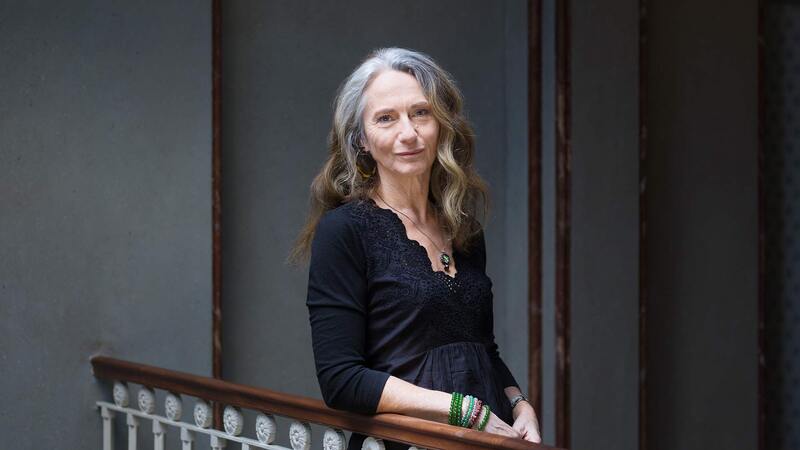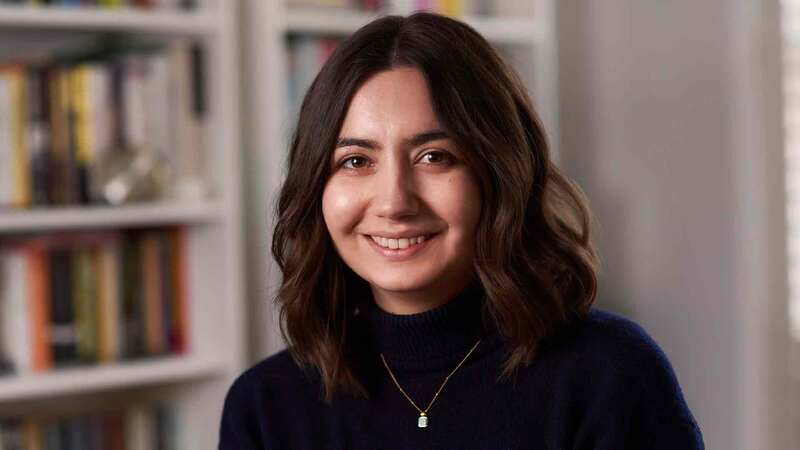You are viewing your 1 free article this month. Login to read more articles.
Victoria Belim in conversation about her memoir, a history of her family's past and a celebration of Ukrainian identity
 Caroline Sanderson
Caroline SandersonCaroline Sanderson is a non-fiction writer, editor and books journalist. Her books include a travel narrative, A Rambling Fancy: in the F ...more
Victoria Belim’s memoir is a personal history of a family’s turbulent past and a celebration of Ukrainian identity.

Caroline Sanderson is a non-fiction writer, editor and books journalist. Her books include a travel narrative, A Rambling Fancy: in the F ...more
A Wild Swans for Ukraine is how I’ve come to think of The Rooster House: A Ukrainian Family Memoir by Victoria Belim. An enthralling richly-layered story told across four generations, it’s a major 2023 title for Virago, was one of the most talked-about books at London Book Fair 2022 and is set to be published in 16 languages. It powerfully illuminates the context of the current conflict in Ukraine but goes beyond it too in reflecting on culture and art, geography and language and how they influence the complexities of who we are.
Writer and translator Belim, now in her mid-40s, was born in Kyiv, then a city in the Soviet Union. Throughout her childhood, she spent summers in rural central Ukraine in the company of her beloved great-grandparents, Asya and Sergiy. In their youth they had survived the Holodomor, the great famine of 1932 and 1933; while working as a teacher at a small village school Asya would start daily lessons after digging graves for the dead children who had nobody left to bury them. During the Second World War, Sergiy lost a leg in the Battle of Kursk in 1943, and Belim grew up with her elders’ memories of that conflict and their belief that every other catastrophe could be overcome, apart from war which was “worse than death”. And in the local town of Poltava, Asya would always avoid walking past the gates of the feared Rooster House (so named for the stone red roosters that flanked its portal), the former secret police headquarters. People joked darkly that it was the tallest building in town “because even down in the basement one could see all the way to Siberia”.
Discovering identity
At the age of 15 Belim moved to Chicago with her mother, and then as an adult to Brussels where she now lives. For three decades she rarely revisited Ukraine, but, as she tells me when we speak via Zoom, she began to yearn for her homeland anew after moving to Belgium in 2013. “There was something about being back here in Europe and even Belgium itself with its complex identity that evoked Ukraine. While people in the US rarely ask where you’re from, in Europe you are often asked that question. I began to say: ‘I am from Ukraine’, but at the same time my self-identity was vague and I realised there was so much about my country that I did not know or understand”.
These very simple objects became to me like a symbol of Ukraine itself because of their fragility, their beauty, but also the fact they had endured as an art form
Then came another reason to return to Ukraine when Belim unearthed a family mystery, that of her maternal great-great-uncle Nikodim who, according to a tantalising line in one of Sergiy’s journals, had “vanished in the 1930s fighting for a free Ukraine”. Her quest to discover the truth about what happened to Nikodim took her deep into the history of her family, the turbulent past—and present—of her country, and through the gates of the feared Rooster House.
Belim returned to Ukraine in 2014, in the immediate wake of Russia’s annexation of Crimea, and spent spring and summer there, reconnecting with her grandmother Valentina who was initially perturbed by her granddaughter’s determination to dig up the past. Nevertheless, Belim set off on Nikodim’s trail and in the process found herself uplifted by her native land, its culture and its beautiful folk art, particularly the rushnyky, symbolic and richly embroidered cloths used in church rituals and to drape over icons. “These very simple objects became to me like a symbol of Ukraine itself because of their fragility, their beauty, but also the fact they had endured as an art form,” she says. Such discoveries, and the people she encountered, prompted her to ask: what does it mean to be Ukrainian?
Life goes on and no matter what, you have to cultivate the land
The Rooster House —which incidentally also has a publicist of Ukrainian heritage in Virago’s Katya Ellis—explains just how complex a question this is for Belim. Like many Ukrainians, she is half-Russian; she has a Russian father and a Ukrainian mother. So she grew up in the company of different languages. “In my family we are Russian-speaking primarily. But my great-grandparents spoke to me in Ukrainian and I also learned Ukrainian at school.” Other relatives spoke Azeri, Armenian, Yiddish, Polish and Belarusian. This multilingual upbringing with its tolerant attitude to diversity profoundly influenced Belim who now speaks a remarkable 18 languages included Japanese, Turkish and Indonesian.
A political science graduate, she is also a translator of Persian literature and poetry. She has chosen to adopt Belim—her great-grandmother Asya’s maiden name—for her writing name, “to honour one of the most influential women in my life and the one who inspired me to write down our stories. She was such a formidable individual, and yet someone who survived unimaginable things”.
You can tell that people expected any moment that something would provoke Russia to act further
Belim’s Russian family on her father’s side also features in the book. While her sleuthing to unearth her maternal great-great-uncle Nikodim’s fate lies at the heart of The Rooster House, her story is bookended by an account of her falling-out with her late father’s brother Vladimir, because of his longing for a return to the “glory days” of the Soviet Union. “When we argued, we might as well have been from different planets”, Belim writes.
Before the conflict The Rooster House was completed in the autumn of 2021, prior to the Russian invasion of Ukraine on 24th February 2022. But a chilling premonition of the war to come runs through the book. “You can tell that people expected any moment that something would provoke Russia to act further”. Many of Belim’s friends and relatives remain in Ukraine, including her first cousin Dmytro whom we meet in the book. He has now established a charity (lifeua.org) for victims of the current conflict, including refugees arriving in Poltava from other regions of Ukraine, and the elderly. “Especially in the villages some elderly people are left with nobody when their sons are mobilised,” Belim tells me. It is to the memory of Belim’s babushka Valentina (1934-2021) that her book is fittingly dedicated. For it is this spirited woman who comes to symbolise the resilience of the Ukrainian people.
Extract
Mourning a place is even more difficult than mourning a person. Losing a loved one is a tragic but inevitable part of human experience, but war is not. Seeing our familiar landmarks sink into violence, we grieve for ourselves as we once were and we question what we have become. Grief squeezed me to the point where I could no longer articulate any thought coherently. Sometimes, sharing a glass of wine with friends, I thought, what if the Russian army invades beyond Crimea? Grey images borrowed from the Second World War films of my childhood sped through my mind: tanks rolling through my great grandparents’ village, men in fatigues chopping down our cherry orchard, bombs falling onto our old apartment in Kyiv.
Someone would then ask me if I was OK, and I would take a sip of my wine and nod. I didn’t know how to explain to my sympathetic friends for whom war existed in faraway places and on the pages of newspapers, that every day of that undeclared war, something shattered inside of me.
When I say to Belim that Valentina’s doughty insistence on planting tomatoes and nurturing her cherry orchard in defiance of political events reminds me of that line in Voltaire’s Candide, “Il faut cultiver son jardin”, she nods. “Life goes on and no matter what, you have to cultivate the land. Because as Valentina always said, the land is the most sacred thing we have.”





